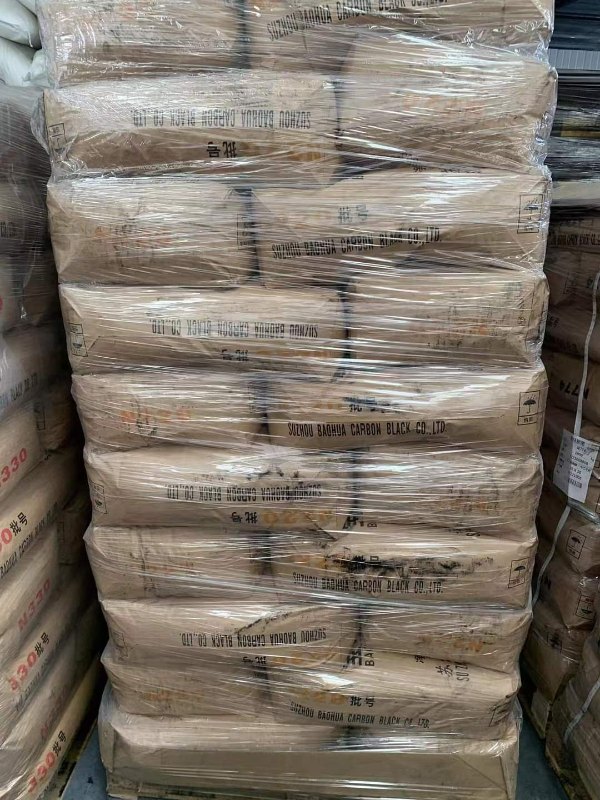Carbon Black
Carbon black is a fine, powdery substance produced through the incomplete combustion and thermochemical decomposition (pyrolysis) of hydrocarbons. This process is carefully controlled to ensure the creation of carbon black with specific characteristics. The primary sources of hydrocarbons used in this process include natural gas, oil, or coal tar.
The resulting carbon black is primarily composed of carbon elements, with smaller amounts of oxygen, hydrogen, and sulfur. The controlled pyrolysis process leads to the formation of fine carbon particles, each measuring between 10 and 500 micrometers in diameter.

Functions and Characteristics
- Particle Structure: Carbon black particles typically exhibit a spherical or rounded structure. This distinctive morphology contributes to their unique properties and suitability for various applications.
- Particle Size: The particle size of carbon black can vary within a range of 10 to 500 micrometers. This variability allows for the production of different grades of carbon black, each tailored for specific applications.
- Color and Surface Area: Carbon black is often black or dark gray in color, reflecting its high carbon content. Its surface area is extensive due to the fine particle size, providing a large contact area for interactions in various applications.
- Conductivity: Carbon black exhibits good electrical conductivity, making it valuable in applications where electrical properties are crucial. This feature is particularly relevant in the rubber and electronics industries.
- Reinforcing Properties: In rubber compounds, carbon black acts as a reinforcing agent, enhancing the strength, durability, and abrasion resistance of rubber products such as tires and conveyor belts.
- Pigment and UV Protection: Carbon black is widely used as a pigment in inks, coatings, and plastics. Its dark color provides opacity, and it also offers UV protection, making it suitable for outdoor applications.
- Absorption Properties: Carbon black has high absorption properties, making it effective in applications such as water filtration, where it can adsorb impurities.
- Thermal Conductivity: Due to its excellent thermal conductivity, carbon black is utilized in various thermal management applications, including inks for laser printers and as a filler in thermally conductive compounds.
Major Applications
Inks and Coatings:
Carbon black is widely used as a pigment in inks and coatings, providing coloration, opacity, and UV protection. It is common in printing inks, paints, and coatings.

Plastics and Polymers:
In the plastics industry, carbon black is employed as a filler to enhance mechanical properties and UV resistance. It is added to polymers to improve conductivity and color.

Packing and Delivery
In Needs of Rubber Vulcanization Accelerators Solution?



